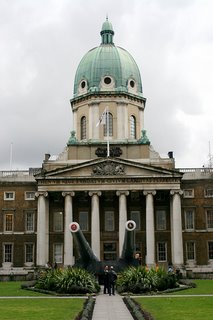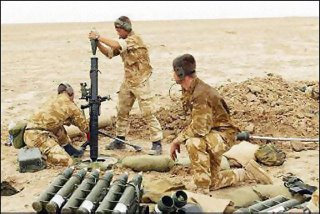Yesterday, operating on about 3 hours sleep in three days (we’ve just had a baby, you see), I attended my first Broadcast Live trade exhibition, here in London, City Of Mighty Talents & Regrettable Teeth.
So what do I do at a show like Broadcast Live? Well, I mix and I mingle and I schmooze – all in hope that I will find that someone who will be happy to give me lots of money. In the course of this mixing and mingling and schmoozing, I find myself accidentally saying things like “Wow, that’s really interesting. Could you please tell me more?” or “So what is your personal background and training?” or even “Well, I think that exact same thing you are saying. What do you think should be done about it?”
Somewhere along the way, in spite of myself, I wind up learning a great deal about a great deal – not just about products and services and robust solutions, but – and this is a headache no entrepreneur needs – about people. And once you start learning about people and what they want and need … well then it’s all over, isn’t it? Because then you start thinking about THEM instead of yourself. Horrifying. Utterly horrifying.
I once worked at the Motion Picture Academy’s Photography Archive in L.A., so I spent an inordinate amount of time yesterday hobnobbing with various stock footage and photography archives – of which there were many. More images – stills and motion picture – are being produced now than ever before. In fact the most recent statistic that comes to mind is that now more images are generated in a day around the world than were generated over a year in our parents’ time. I have no way of knowing whether or not this statistic is true, because I have just now made it up out of my imagination. But it certainly sounds like the kind of thing that could be true, doesn’t it?
 Apparently there is a war going on – the nature of it is obscure, and will stay obscure for a long time. Staggering amounts of money are being spent and made every day that the war continues. So I found it fascinating, during my frank discussion with representatives of the Image Archive of the Imperial War Museum, to hear that, due to lack of funding, they are frantically struggling to process, archive, and maintain pictorial materials from WWII, and that preserving the history of recent military conflicts is not even on the horizon. This is entirely due to a lack of financial resources – and the Imperial War Museum is considered to be well-funded as compared to most other public education institutions.
Apparently there is a war going on – the nature of it is obscure, and will stay obscure for a long time. Staggering amounts of money are being spent and made every day that the war continues. So I found it fascinating, during my frank discussion with representatives of the Image Archive of the Imperial War Museum, to hear that, due to lack of funding, they are frantically struggling to process, archive, and maintain pictorial materials from WWII, and that preserving the history of recent military conflicts is not even on the horizon. This is entirely due to a lack of financial resources – and the Imperial War Museum is considered to be well-funded as compared to most other public education institutions.
So if you are a veteran of the Falklands War, or a British soldier presently dodging Iraqi resistance bullets in Basra, or a helicopter pilot patrolling the skies over the poppy fields in Afghanistan, you might be out of luck if you want your grandchildren to get an accurate picture of your war experience.
Instead, what is likely to happen is that your children will sort through your personal mementos and correspondence and photography after your death. If they don’t put them away in an attic, they could possibly donate these materials to the Imperial War Museum – assuming the institution still exists – and then, all things remaining equal, those materials will sit in storage – if there is space available – for yet another 75 years before they can finally be processed and made available to researchers. Then based on that age-worn data, fragmented, diluted by decades of mythologizing, books will be written purporting to tell what it was really like in Basra, in Kabul, in Mogadishu. And you will shout from your grave that it was not like that at all! But no one will hear you.
 I realize the study of war is a peculiar thing – inextricably bound up with the deepest human fears and with the necessity to bend large groups of people to the will of a few. In this context, it is clearly undesirable to objectively study a conflict in detail. News media coverage may be voluminous and is in fact the foundation for much research. But news media, in all wars and all civilizations, is a propaganda tool first and foremost, and objective study of conflicts based on media sources, however much may be made available, will rarely yield a truthful account of a war, it causes, its effects, its reason for being. If we want to learn about ethnic cleansing in WWII, for example, we read Anne Frank and Elie Wiesel before we look to the Saturday Evening Post.
I realize the study of war is a peculiar thing – inextricably bound up with the deepest human fears and with the necessity to bend large groups of people to the will of a few. In this context, it is clearly undesirable to objectively study a conflict in detail. News media coverage may be voluminous and is in fact the foundation for much research. But news media, in all wars and all civilizations, is a propaganda tool first and foremost, and objective study of conflicts based on media sources, however much may be made available, will rarely yield a truthful account of a war, it causes, its effects, its reason for being. If we want to learn about ethnic cleansing in WWII, for example, we read Anne Frank and Elie Wiesel before we look to the Saturday Evening Post.
But if the Imperial War Museum were given enough means to preserve for study the war experience not only of our grandfathers and great-grandfathers, but of our daughters & sisters, sons & brothers, husbands & wives, and our children … well, that would be revolutionary. And would, most importantly, help us to see and feel clearly that war is not history.
—
From the IWM’s website:
The Imperial War Museum has an incomparable collection covering all aspects of twentieth and twenty-first century conflict involving Britain and the Commonwealth.
Collections Online provides unprecedented access to large parts of this rich resource and is continually updated.
Web users can now access over 6,000 highlights from the collection, including photographs, works of art, audio extracts, aircraft and vehicles, documents and library material as well as detailed catalogue information on over 160,000 items.
Also included are short essays on major historical themes that lead you to selected highlights from the collections.
The Collections encompass a wealth of material:
* 19,000 painting, drawings and sculptures
* 15,000 posters
* 120 million feet of cine film
* 10,000 hours of videotape
* 36,000 hours of historical sound recordings
* 6 million photographs, negatives and transparencies
* 270,000 items in the national libraryThe Imperial War Museum is also a major national art gallery, a national records archive and a research centre.
Much is on display but the Museum is unique in the degree of access it offers to its reserve collections. Professional and private visitors are welcome to study ‘behind the scenes’ and the Museum deals with over 80,000 enquiries each year. Over 120 people work in the Collections Division, helping to acquire, catalogue, conserve and correctly store or display the items.